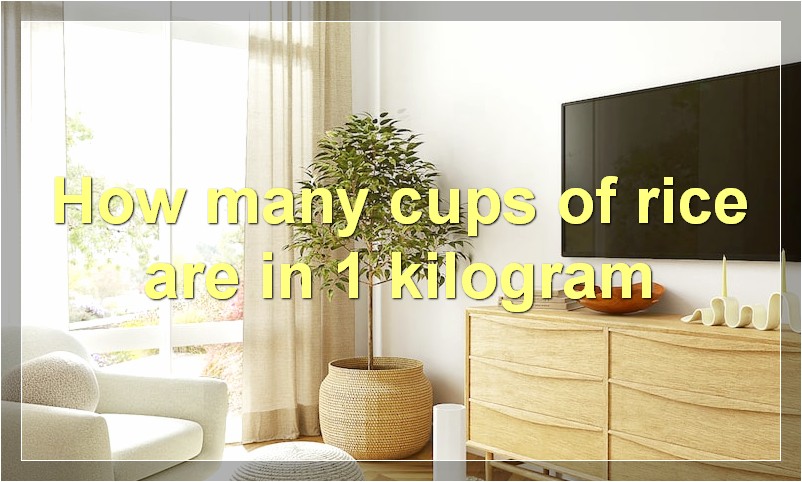Did you know that the time it takes for a seed to sprout can vary greatly? Some seeds will sprout within a week, while others can take months. In this article, we’ll discuss how long it takes for different types of seeds to sprout.
What are the ideal conditions for seeds to sprout?
When it comes to planting and growing, there is a lot that goes into ensuring your plants are healthy and thrive. One of the most important things to consider is the conditions in which you plant your seeds. Depending on the type of seed, different ideal conditions are necessary for them to sprout. Here is a look at some of the things you need to take into account to ensure your seeds have the best chance at germinating successfully.
Temperature
One of the most important factors in seed germination is temperature. Different seeds have different ideal temperature ranges in which they will germinate. For example, cool season vegetables like kale and cabbage can actually tolerate a light frost and will actually germinate better in cooler temperatures. On the other hand, warm season vegetables like tomatoes and peppers need warm soil temperatures, around 70 degrees Fahrenheit, to germinate properly.
Soil Moisture
Another important factor to consider is soil moisture. Seeds need to be planted in moist soil in order to germinate properly. The soil should be evenly moistened so that it is not too wet or too dry. If the soil is too dry, the seed will not be able to absorb enough water to start the germination process. If the soil is too wet, the seed may rot before it has a chance to germinate.
Soil Nutrients
In addition to moisture, seeds also need nutrients in order to germinate properly. A good quality potting mix or garden soil will have the right mix of nutrients that seeds need to grow. If you are unsure about the nutrient levels in your soil, you can always have it tested by your local cooperative extension office.
Light Conditions
Another important factor to consider is light. Some seeds need light in order to germinate while others do not. For example, lettuce and petunia seeds will not germinate if they are planted too deeply and covered with too much soil. They need light in order to start the germination process. On the other hand, impatiens and Begonia seeds actually need darkness in order to germinate properly so make sure you plant them under a layer of soil or mulch.
Now that you know some of the things that go into creating ideal conditions for seeds to sprout, you can be sure your plants have the best chance at a healthy start. By taking into account factors like temperature, moisture, nutrients and light, you can create an environment that is conducive to successful germination.
What is the average time it takes for seeds to sprout?

When it comes to growing plants from seed, there is no one definitive answer to how long it takes for seeds to sprout. The time it takes for a seed to germinate and emerge from the soil can vary greatly depending on the species of plant, the conditions under which it is grown, and even the individual seed itself. However, there are some general guidelines that can give you a ballpark estimate of how long it might take for your particular seeds to sprout.
In general, most fast-growing annual plants will sprout within 7-14 days, while slower-growing perennial plants can take anywhere from 14-21 days to germinate. Some especially slow-growing plants, such as trees and shrubs, may not sprout at all the first year after planting and may take 2 or more years before they finally break through the soil surface.
Of course, these are just averages and there will always be exceptions. Some seeds may sprout much faster or slower than these general timelines depending on the specific species and growing conditions. For example, certain Seeds that require a period of cold stratification in order to germinate may not sprout at all if they are planted at the wrong time of year or in an area with an insufficient winter chill.
If you are unsure about how long it should take for your particular seeds to sprout, consult a gardening expert or reference guide for more specific information. In the meantime, be patient and keep watering and fertilizing as needed–eventually your little seeds will break through the soil and start growing into healthy plants!
Why do some seeds take longer to sprout than others?
Seeds are the beginning of a plant’s life cycle, and as such, they are vital to the continuation of the species. The time it takes for a seed to germinate and sprout into a plant depends on many factors, including the type of seed, the conditions under which it is grown, and even the age of the seed. Some seeds, such as those of annual plants, will sprout quickly and reliably within a few days or weeks, while others, such as those of some trees, can take months or years.
There are several reasons why some seeds take longer to sprout than others. One reason has to do with the type of seed. For example, annual plants typically have smaller seeds than trees, which results in a faster rate of germination. This is because the smaller seed size allows for more rapid uptake of water and nutrients, which is necessary for cell growth and division. Additionally, annual plants generally have thinner seed coats than trees, which also facilitates quicker germination.
Another reason that some seeds take longer to germinate than others has to do with the conditions under which they are grown. Seeds need water and warmth in order to sprout, and if either of these conditions is lacking, germination will be delayed. For example, seeds that are planted in very dry soil may not receive enough moisture to initiate germination, and seeds that are planted in very cold soil may not receive enough warmth. Additionally, some seeds require light in order to germinate, while others do not; if a seed is buried too deeply below the surface of the soil, it may not receive enough light to trigger germination.
Finally, the age of the seed can also affect how long it takes to germinate. In general, fresher seeds will germinate more quickly than older seeds; however, there are exceptions to this rule. Some types of seeds actually benefit from a period of dormancy, during which they undergo biochemical changes that make them better able to withstand stressful conditions (such as drought or freezing temperatures). As a result, these types of seeds may actually take longer to germinate if they are planted immediately after harvest.
Is there anything you can do to speed up the germination process?
Yes, there are several things you can do to speed up the germination process. Germination is the process of a seed sprouting and growing into a plant. The time it takes for a seed to germinate can vary depending on the type of seed, the conditions in which it is grown, and how it is cared for. There are several things you can do to speed up the germination process and help your seeds grow into healthy plants.
One way to speed up the germination process is to sow your seeds in warm soil. Soil temperature plays a big role in how fast seeds will germinate. Seeds generally germinate faster in warm soil than in cold soil. If you live in an area with cold winters, you can start your seeds indoors in pots so they can get a head start on the growing season.
Another way to speed up the germination process is to make sure your seeds have plenty of moisture. Seeds need water in order to germinate and grow. You can soak your seeds in water for a few hours before planting to make sure they have plenty of moisture. You will also need to keep the soil moist during the germination process by watering regularly.
You can also improve the chances of your seeds germinating by using a seed starter mix. Seed starter mix is a special type of potting mix that is designed for starting seeds. It is usually light and fluffy and has just the right amount of nutrients for young plants. Starting your seeds in seed starter mix can give them a boost and help them germinate faster.
Finally, you can use a grow light to help speed up the germination process. Grow lights mimic sunlight and can help seeds sprout faster. They also provide extra light for young plants as they grow. If you start your seeds indoors, using a grow light is a great way to make sure they get the light they need to grow strong and healthy.
There are several things you can do to speed up the germination process and help your seeds grow into healthy plants. Sowing your seeds in warm soil, making sure they have plenty of moisture, using a seed starter mix, and using a grow light can all help improve the chances of your seeds germinating successfully.
How can you tell if a seed is still viable and will sprout?
When it comes to gardening, one of the most common questions is “how can you tell if a seed is still viable and will sprout?”.
Many gardeners have been there before – you find an old packet of seeds in the back of the cupboard and you’re not sure if they’re still any good.
Or maybe you’ve had a bad experience where you’ve sown a whole tray of seeds, only to have them all fail to germinate. It’s so disheartening!
But don’t despair, there are ways to test your seeds to see if they’re still good. With a little bit of know-how, you can give yourself the best chance of success when it comes to germination.
Here are some simple tests you can do at home to check if your seeds are still viable:
The Float Test
This is probably the quickest and easiest way to test your seeds. Simply take a bowl or glass and fill it with water. Drop your seeds into the water and wait a few minutes.
If the seeds sink to the bottom, they’re probably still good. If they float, chances are they’re no longer viable.
The Paper Towel Test
This is a slightly more reliable method than the float test. Get a couple of sheets of kitchen paper and dampen them with water. Place your seeds on one sheet, then fold the other sheet on top.
Place the whole thing somewhere warm – like on top of the fridge – and check after a few days. If your seeds have sprouted, they’re probably still good. If not, they may be past their best.
The Germination Test
This is the most reliable way to test your seeds, but it does require a bit more time and effort. You’ll need to sow your seeds in soil or vermiculite and place them in a warm, dark place. Check on them regularly, watering as necessary.
After a couple of weeks, you should be able to tell if your seeds have germinated or not. If they have, chances are they’re still good. If not, they’re probably no longer viable.
So there you have it – three simple ways to test your seeds at home to see if they’re still good. By using one or more of these methods, you can give yourself the best chance of success when it comes to germination.
What happens if you plant a seed that hasn’t germinated yet?

If you plant a seed that hasn’t germinated yet, it will most likely not grow. This is because the process of germination needs to take place in order for the seed to sprout and begin to grow. When a seed is first planted, it is in a dormant state. In order for it to begin growing, it needs to go through the process of germination, which includes absorbing water, breaking down the seed coat, and beginning to grow a root system. If a seed hasn’t gone through this process yet, it is unlikely to sprout and begin growing.
Can all seeds be sprouted, or are there some that just won’t grow?
Sprouting seeds is a fun and easy way to grow your own food at home, with very little investment. Plus, it’s a great way to get kids interested in gardening! However, not all seeds are created equal when it comes to sprouting. Some will sprout readily, while others may never sprout at all. So, what’s the difference?
The answer lies in the seed coat. The seed coat is a protective layer that covers the embryo of the seed. This coat helps the seed to survive in adverse conditions, such as drought or freezing temperatures. In order for a seed to sprout, the seed coat must be breached. This can happen naturally, through physical damage or exposure to certain chemicals. Once the seed coat is breached, water can enter theseed and start the germination process.
Not all seeds have a protective coating, however. Some seeds, such as those of certain annual flowers, don’t need one because they only live for one growing season. These types of seeds will sprout readily with just a little moisture. Other seeds, such as those of perennial plants, have a hard seed coat that needs to be breached before they will germinate. You can try scarifying these seeds (scratching the surface with a file or sandpaper) to make it easier for water to enter.
If you’re still having trouble getting your seeds to sprout, there are a few other things you can try. Some gardeners recommend soaking hard-coated seeds in warm water overnight before planting. Others suggest using a growing medium that is high in organic matter, such as vermiculite or perlite, which can help to hold moisture and make it easier for roots to penetrate the soil. Whatever method you choose, be patient! With a little time and effort, you should be able to get even the most stubborn seeds to sprout.
Once a seed sprouts, how long does it take until it becomes a mature plant?
It takes a seed about 21 days to germinate and approximately six weeks to become a mature plant. The time it takes for a seed to germinate and grow into a mature plant depends on the type of seed, the growing conditions, and the availability of water and nutrients. Some seeds, such as annuals, will only live for one season while others, such as perennials, can live for many years.
Do all plants come from seeds?
Did you know that not all plants come from seeds? Some plants can reproduce asexually, meaning they don’t need another plant to fertilize their eggs. Asexual reproduction is when an organism creates a genetically identical copy of itself. This process can happen through budding, where a new plant grows from a small piece of the parent plant, or binary fission, where the parent plant splits in half and each half becomes a new plant. There are also some plants that reproduce via spores, which are tiny cells that travel through the air and grow into new plants when they land on moist soil.
So, next time you’re looking at a flower or tree, remember that not all of them come from seeds!
If you want to grow a specific plant, do you need to buy its seeds, or can you get them another way?
You can grow a specific plant by buying its seeds or by getting them another way. Seeds are the most common way to propagate a plant, but there are other methods, too. You can take cuttings from the plant you want to grow, or you can division. Or, if you have a friend with the same plant, you can ask for some of their plants.




